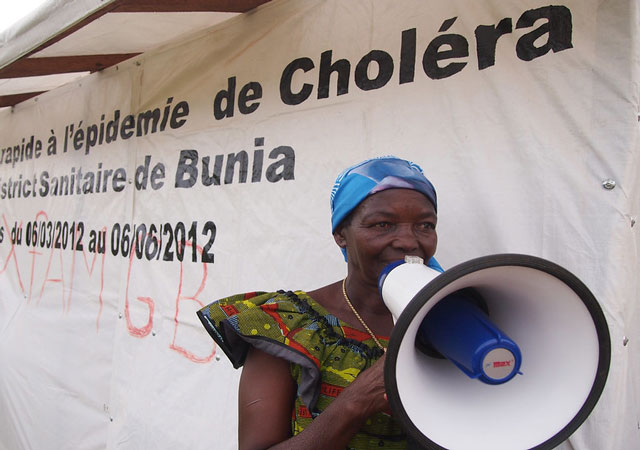Daijiworld Media Network – Kinshasa
Kinshasa, Oct 25: An escalating cholera outbreak in the Democratic Republic of the Congo (DRC) has triggered growing concern among health authorities and humanitarian groups, with Medecins Sans Frontieres (MSF) warning that the situation could deteriorate further as the rainy season sets in.
According to the DRC Ministry of Health, the country has recorded more than 58,000 cholera cases and 1,700 deaths over the past nine months. The outbreak has spread to 20 of the nation’s 26 provinces, marking one of the most extensive surges in recent years.

Across Africa, 23 countries have reported outbreaks of the highly contagious waterborne disease this year, with over 172,000 cases documented since January 1, according to the World Health Organization (WHO). The DRC, Sudan, and South Sudan have been the hardest hit, together accounting for nearly 75% of the region’s total cases and fatalities, Africa Centres for Disease Control and Prevention (Africa CDC) officials said last month.
MSF attributed the worsening crisis in DRC to a combination of floods, armed conflicts, large-scale displacement, and inadequate sanitation and water infrastructure. The organization noted that the response has been severely constrained by insufficient funding, a shortage of medical supplies and vaccines, and a limited presence of humanitarian actors in some affected regions.
“The rapid spread of the epidemic across the country this year is of particular concern to us, especially during the rainy season,” said Jean-Gilbert Ndong, MSF physician and medical coordinator in DRC. “We fear further outbreaks if urgent measures aren’t taken.”
Cholera, caused by the Vibrio cholerae bacterium, spreads through contaminated water and food, leading to severe diarrhea and dehydration. While the disease can be treated effectively with antibiotics, oral rehydration solutions, and intravenous fluids, it remains fatal if left untreated.
Health experts are calling for urgent intervention, improved access to clean water, and accelerated vaccination campaigns to contain the epidemic before it worsens further.